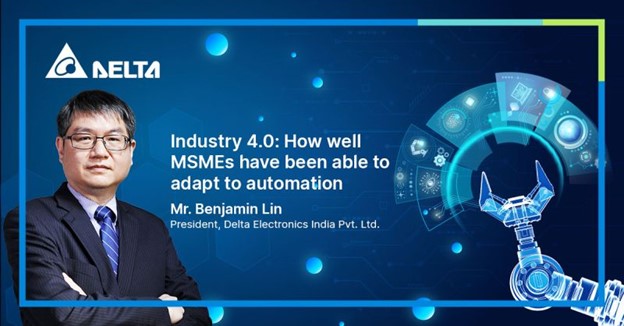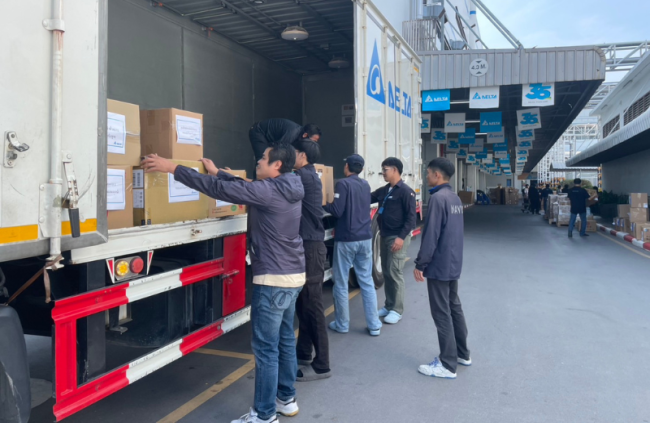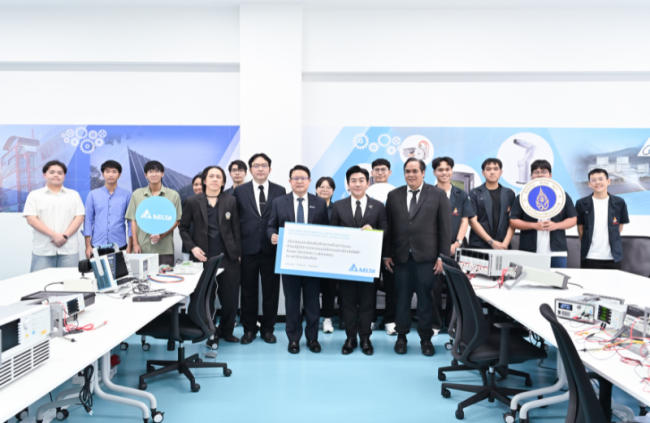Industry 4.0: How well MSMEs have been able to adapt to automation
By Delta India - Published July 11, 2023
 Original interview of Mr. Benjamin Lin, Delta India President, was published in Financial Express
Original interview of Mr. Benjamin Lin, Delta India President, was published in Financial Express
Automation holds immense potential for micro, small, and medium Enterprises (MSMEs) across various industries. The benefits of automation for MSMEs are numerous and can significantly impact their operations, competitiveness, and overall growth.
Firstly, automation enhances productivity by automating repetitive tasks and streamlining workflows. By eliminating manual and time-consuming processes, MSMEs can optimise their operations and allocate resources more efficiently.
Secondly, automation enables cost reduction for MSMEs. By automating processes, businesses can minimise errors, reduce waste, and optimise resource allocation. This leads to lower operational costs, improved cost efficiency, and increased profitability.
Furthermore, automation technologies like robotics, artificial intelligence (AI), and the Internet of Things (IoT) offer MSMEs access to advanced tools and capabilities that were once only available to larger enterprises.
Challenges faced by MSMEs
While the potential benefits of automation are substantial, MSMEs encounter unique challenges in their journey towards adaptation. Financial constraints often pose a significant barrier, as the upfront investment required for implementing automation technologies can be daunting for small businesses.
Additionally, MSMEs may face a lack of technical expertise and skilled labor, making it difficult to deploy and maintain automated systems effectively.
To overcome these challenges, MSMEs need to develop tailored strategies that address their specific needs and limitations, empowering them to embrace automation successfully.
Strategies for successful adaptation
Collaboration with technology providers and industry experts is essential, as it allows MSMEs to gain valuable insights and access the necessary resources for automation implementation. Moreover, governments and industry associations can provide valuable support through financial assistance, training programmes, and facilitating the adoption of automation technologies.
Upskilling the workforce
By upskilling their workforce, MSMEs can ensure a smooth transition to automation, allowing them to fully leverage its benefits. Upskilling also opens up new avenues for growth and career advancement for employees, fostering loyalty and engagement within the organisation.
Overcoming financial barriers
Financial constraints often pose significant challenges for MSMEs in adopting automation. To address this issue, governments and financial institutions play a crucial role in providing support. Additionally, innovative financial models such as leasing or pay-per-use arrangements can make automation more accessible to small businesses, allowing them to overcome financial barriers while still benefiting from automation technologies.
Encouraging innovation and collaboration
Innovation and collaboration are key drivers for MSMEs in the era of Industry 4.0. actively participating in innovation ecosystems, technology hubs, incubators, and research partnerships can provide MSMEs with access to cutting-edge technologies, expert advice, and collaboration opportunities.
Conclusion
Automation brings significant benefits in terms of increased productivity, cost reduction, and improved efficiency for MSMEs. By developing tailored strategies, collaborating with technology providers, upskilling the workforce, overcoming financial barriers, and fostering innovation and collaboration, MSMEs can successfully embrace automation and leverage the opportunities presented by Industry 4.0.







